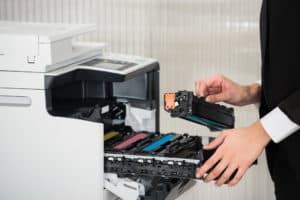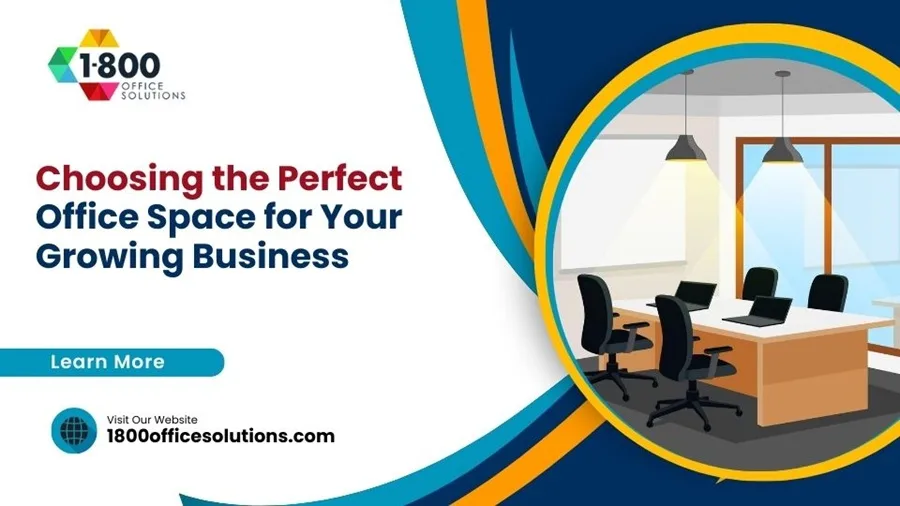3 Key Differences Between Commercial Printers and Desktop Printers
Is your company in desperate need of a new printer for the main floor of the office? Do you have a bunch of remote workers who need access to a printer in their home offices? If so, then you need to learn the differences between a commercial printer and a desktop printer.
Doing so can help you find the best printer for your office. Rather than have a few trials and errors, you can have confidence in the printer that you purchase.
See below for several distinct differences between commercial and desktop printers. Consider these factors as you find the right fit for your needs.
What Is a Commercial Printer and Desktop Printer?
First things first, you need to understand what the different terms are referring to. That way, you know exactly what you’re looking for.
For example, the term “commercial printer” can either be referring to a large printer capable of handling a larger workload or, in some cases, a professional service you hire to print your collateral for you.
In this case, it means the former. Here is an explanation of the two:
- Commercial Printer: Also known as large format printers, these printers can serve several functions to keep up with the modern workforce. Some are industry-specific, such as the KIP 75 Series, which is mainly used to print project materials such as floor plans, blueprints, etc.
- Desktop Printer: Printers that are smaller in size, generally small enough to fit comfortably on a desk, table, or counter. They feature all the modern technology in a compact size, such as jet printing and laser printing.
Knowing the difference is imperative. You want to make sure the printer that you purchase meets your budget but has all of the tools that your business needs. Otherwise, you’re spending money on things you’ll never use or missing out on features you desperately needed.
What Are the Main Differences?
Besides the obvious size difference, there are a few contrasts between commercial and desktop printers you’ll want to be aware of. Knowing them will help you find the perfect fit. See below for more intel.
1. Purpose
As you might imagine, commercial printers and desktop printers have two very different purposes. As the name would imply, commercial printers focus more on accommodating the printing needs of organizations such as printing marketing signs, creating maps/outlines, and so forth.
While desktop printers are more than capable of helping with business collateral as well, they do so on a smaller scale. Think along the lines of things such as documentation, flyers, pamphlets, invoices, or written-up reports.
Needless to say, there’s a place for both in your business model. It’s all about finding the right printing hardware for your needs and meeting the demand.
Many small businesses choose to purchase one commercial printer for the entire company to use, then desktop printers for each department. The amount depends on the size of the operation.
2. Workload
Your company’s workload is everything. To meet the demand of your clients and business partners, your office needs cutting-edge technology to keep up.
For example, say you’re hosting several high-profile prospects in your company’s meeting room and you want to create business reports to hand each of them at the beginning of your presentation.
Depending on the number of prospects, your desktop printer might not be able to produce the number of reports you need in a small turnaround. That’s when it might be best to use a large format printer.
It can grant you a consistent print speed without sacrificing quality. That way, you’ll spend less time waiting for everything to print out before you can create the packets.
3. Convenience
Desktop printers can be a huge lifesaver for your business. They can cut down the wait time at the printing line, allowing you to provide one for each department or—if necessary—each employee.
No matter what your employees need to be printed, they’ll have the luxury of being able to do so from their desks. This is especially important if your workers are working entirely from home. They still need the ability to print out documentation for their in-person meetings and personal records.
You might also consider investing in scanners for employees whose jobs involve a lot of scanning and sending invoices to clients. That way, they aren’t forced to walk down the hall to use the universal scanning machine.
How to Find an Office Equipment Supplier
When shopping around for your commercial printer and desktop printer needs, it’s important to find an office equipment supplier that you can trust.
More importantly, you want to find someone that can offer you managed IT services as well. That way, they won’t just sell you your office printing hardware, they’ll help you set up and manage it effectively.
Believe it or not, digital printers can cause you to become a victim of a cybersecurity crime if they lack protection. Having an office equipment supplier with IT support will help you dodge that issue at all costs.
Fulfill Your Desktop and Commercial Printer Needs Today
Now that you’ve seen the main differences between a commercial printer and a desktop printer, be sure to use this information to your benefit.
Be sure to read this article for more information on how to breathe new life into your old PC rather than ditching it for a new PC too early.
For more inquiries, please be sure to reach out via our contact us page and we will be happy to assist you further.











